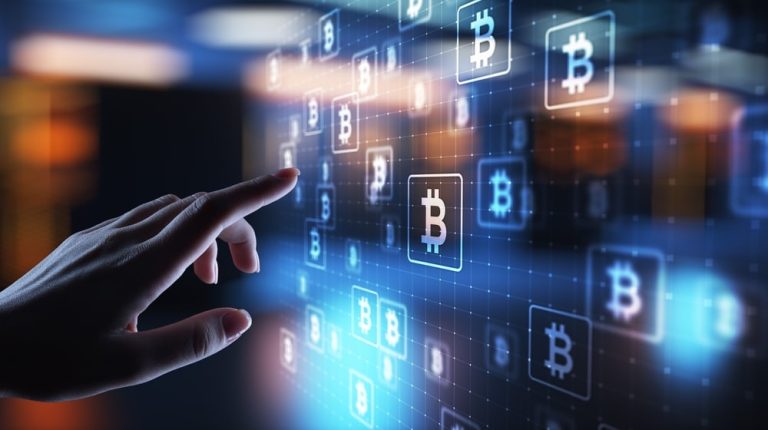In the June 2023 edition of The ICR D.C. Insider, we share our insights and analysis about developments in Washington that could have an immediate and long-term impact on your business.
What’s Next In Washington
As the typical summer lull approaches in Washington, Congress and The White House have been – and to a certain degree continue to be – consumed with a focus on three overarching issues:
- Debt Ceiling Solution – President Biden signed into law a package that averted a U.S. default on its debt obligations. In addition to suspending the debt ceiling until January 1, 2025, the legislation includes, among other things, spending caps on overall discretionary spending for the next two fiscal years, claws back nearly $30 billion in unspent relief funds, rescinds $1.4 billion of the $80 billion from 2022’s Inflation Reduction Act that was destined for the IRS (additional maneuvering is also possible), raises the age for adults without dependents who have to work in order to receive various federal aid payments, and speeds permitting reform for energy projects.
- China – Congressional and Biden Administration dissonance with respect to China continues as Commerce Secretary Gina Raimondo met with her Chinese counterpart Wang Wentao in the highest-level visit to Washington by a Chinese official since March 2021. The two discussed “concerns” surrounding bilateral trade. Separately, the House Select Committee on the Chinese Communist Party held a hearing framed around China’s economic warfare, forced technology transfers, intellectual property theft, and exploitation of U.S. capital markets. At the G-7 meeting in Hiroshima, Japan, the nations took a strong stand against China’s “economic coercion,” a stance that China strongly condemned. Subsequently, China bluntly rebuffed a U.S. request for a meeting between U.S. Defense Secretary Lloyd Austin and China’s new Defense Minister at an annual security forum in Singapore, showing the limits of a tentative rapprochement between the two rival powers.
- The 2024 Election – Now that the debt ceiling crisis has been averted, Congress and the Biden Administration will turn their attention to the 2024 election. It will be increasingly important to view the actions of both through this political lens. Hearings, legislation, and public commentary will skew heavily toward political rhetoric and diverge from the day-to-day business of government.
SEC
- Climate Change Rule Proposal – Update – Former SEC Commissioner, and current New York University law professor, Robert Jackson, said he has learned that the proposed climate change rule will be delayed until the fall of 2023, meaning that financial statements and disclosures under the rule would not be due until 2024. Potentially hemming in the Commission is the landmark 2022 Supreme Court case West Virginia v. EPA which cemented a new rule of statutory interpretation called the “major questions doctrine.” This requires regulatory agencies point to a “clear congressional authorization” when claiming authority from a statute. Objections to the proposed climate rule on First Amendment grounds are anticipated as well.
- The Supreme Court also said it would reconsider the “Chevron deference” doctrine, a principle stemming from Chevron v. Natural Resources Defense Council, a 1984 Supreme Court opinion that gives regulators legal cover to interpret ambiguous – and sometimes outdated – statutes. The Court’s conservative majority appears poised to overturn or narrow Chevron, a move that would weaken the Biden Administration’s ability to defend its regulatory agenda, including a rule requiring public companies to disclose information about carbon emissions and climate risks.
- Business Groups Sue SEC Over Stock Buyback Rules – A trio of business groups led by the S. Chamber of Commerce sued the Commission to block new rules requiring public companies to disclose more information about their stock buybacks. The lawsuit, filed in a conservative appeals court favored by industry groups fighting government regulation, is one of the first legal challenges to SEC Chair Gary Gensler’s rule-making agenda.
- More Enforcement Sweeps On The Way – Financial industry firms should expect more sweeps – and investigations associated with those sweeps will be quicker, according to Gurbir Grewal, Director of the SEC’s Division of Enforcement. Grewal noted that not every person or firm on the receiving end of an enforcement action will get a Wells meeting with the Enforcement Division’s Director or Deputy Director beforehand.
- Senate Democrats Push Gensler On Private Funds Rule – Senate Banking Committee Chairman Sherrod Brown (D-Ohio) is urging Chair Gensler to finalize a new rule that would force private equity firms and hedge funds to give their investors regular updates about their fees, expenses, and investment practices. The rule, which has been the subject of an intense lobbying effort on the part of the private funds industry, would “provide additional transparency and comes at a critical time given the continued growth in private funds,” Brown wrote in a letter co-signed by seven additional Democrats.
- Cybersecurity Proposals Emphasized – In a speech to the Digital Directors Network, SEC Commissioner Jaime Lizárraga discussed the value of the five cyber-focused rules the SEC has proposed. These proposals require issuers, funds, intermediaries, Self-Regulatory Organizations (SROs), and other registrants to adopt and implement a range of cybersecurity policies and procedures.
FTC
- Potential Harm Of Biometric Data Cited – The Federal Trade Commission (FTC) warned that the increasing use of consumers’ biometric information and related technologies, including those powered by machine learning, raises significant consumer privacy and data security concerns as well as the potential for bias and discrimination. In a policy statement, the Commission said it is committed to combatting unfair or deceptive acts and practices related to the collection and use of consumers’ biometric information, as well as the marketing and use of biometric information technologies.
Additional Key Developments
- Labor Department – The nomination of Deputy Labor Secretary Julie Su to become Secretary continues to be in limbo following comments from Joe Manchin (D-W.Va.) that he does not plan to support her and has solicited a list of alternate candidates. The Biden Administration continues to lobby on her behalf, including through the deployment of third-party advocates.
- Justice Department – More companies are choosing to voluntarily alert the Justice Department to instances of potential criminal misconduct after the department upped the rewards for doing so, Criminal Division head, Assistant Attorney General Kenneth Polite Jr., said. Under the expanded self-disclosure policy, companies that disclose wrongdoing to the Justice Department and fully cooperate and fix underlying problems are eligible for discounts on financial penalties, or even a promise that prosecutors won’t bring a case altogether.
- PCAOB – The Public Company Accounting Oversight Board (PCAOB) found significant auditing deficiencies in its first ever set of inspections in China and Hong Kong, saying that local affiliates of KPMG and PricewaterhouseCoopers missed the mark on auditing U.S.-listed companies in the region. However, the PCAOB noted that it is not unexpected to find such high rates of deficiencies in jurisdictions that are being inspected for the first time, and that the findings were consistent with the types and number of findings the board has encountered around the world in other first-time inspections.
- Legislation To Show Where Products Are Made – Tammy Baldwin (D-Wisc.) and JD Vance (R-Ohio) have introduced bipartisan legislation to ensure that all goods sold online list their country-of-origin, and noted that “Chinese companies have exploited this loophole.” The Country of Origin Labeling (COOL) Online Act would increase transparency online by updating U.S. labeling laws for the e-commerce era so online shoppers have the same access to country-of-origin and seller location information that in-person shoppers do.
- White House Considers Ban On Ransomware Payments – Deputy National Security Adviser for Cyber and Emerging Technology, Anne Neuberger, floated the possibility that the Biden Administration could ban companies from making ransomware payments.
- China – Key developments include:
- Mike Gallagher (R-Wisc.) who chairs the House Select Committee on the Chinese Communist Party, said that the de minimis exception – a part of the Tariff Act that allows packages valued at less than $800 to skip the paperwork and, therefore, scrutiny of their origins with respect to having been made with forced labor – wasn’t supposed to be a loophole for foreign businesses looking to skirt human-rights legislation and taxes. The Select Committee unanimously approved a series of policy recommendations, including lowering the de minimis threshold.
- The Select Committee also held a hearing which discussed the Chinese military’s uses of artificial intelligence (A.I.) as well as the U.S.’s “de-risking” strategy. Chairman Gallagher and Ranking Member Raja Krishnamoorthi (D-Ill.) laid out plans to de-risk, including through collaboration with allies, restricting U.S. investment into technology for China’s military, and bolstering critical sectors in the U.S. Rep. Gallagher called for an expanded outbound investment mechanism that would go beyond the one that is currently being considered, and would include restrictions on U.S. capital flows to Chinese firms listed on U.S. stock exchanges and in ETFs and mutual funds. One witness, former USTR Robert Lighthizer, told the Committee that there should be additional inbound investment screenings that restrict Chinese investment to only those investments deemed beneficial to the U.S.
- The U.S. and 13 other Asia-Pacific nations have agreed to expand supply-chain cooperation, delivering an early win ina new U.S.-led initiative to strengthen economic ties with the region’s friendly nations amid rising tensions with China. Additionally, Commerce Secretary Gina Raimondo and Japanese Economy, Trade and Industry Minister Yasutoshi Nishimura issued a joint statement noting that the two allies will encourage semiconductor research centers in both countries to work together to create a road map for the development of technology and human resources associated with chips. Areas of cooperation include artificial intelligence, cybersecurity, as well as bio-related and quantum technologies.
- Following China’s decision to ban Micron’s chips in its critical infrastructure, Rep. Gallagher called for the blacklisting of Changxin Memory Technologies. House Foreign Affairs Chairman Michael McCaul (R-Texas) also agreed that Congress must react.
- China signaled through state-run media that its national security agencies are engaged in a nationwide investigation into whether the due-diligence industry that has grown up to serve Western businesses in the country has been used for foreign espionage. The information-based due-diligence industry is critical to business dealings, from valuing corporate mergers to building supply chains. The industry is suddenly in the crosshairs of Beijing’s efforts to limit foreign influence in China, including information gathering, by tightening government control over a wider swath of data and digital activities in the name of national security.
- The Biden Administration released a report, the “National Standards Strategy for Critical and Emerging Technology,” which lays out a strategy for how to strengthen U.S. leadership in international standards setting. The report has a focus on critical and emerging technology, including: telecommunications networks; semiconductors; artificial intelligence; biotechnologies; distributed ledger technologies (DLT) or blockchain technology; clean energy; and quantum computing. The Administration will also focus on related industries including: Internet of Things (IoT); critical minerals supply chains; cybersecurity and privacy; and carbon capture, removal, utilization and storage.
- Paul Rosen Assistant Secretary for Investment Security at the Treasury Department told the Senate Banking, Housing, and Urban Affairs Committee that the Biden Administration’s outbound investment review program will enable it to review, and potentially deny, U.S. investments in Chinese advanced microchips, artificial intelligence and quantum computing
- Fewer S. companies are applying to export sensitive technologies to China amid growing government scrutiny of the flow of goods to the country, especially those with potential military applications. Applications to export sensitive technology and goods to China dropped by 26.2% between 2021 and 2022, according to Thea Rozman Kendler, Assistant Secretary of Commerce for Export Administration at the Commerce Department’s Bureau of Industry and Security, in prepared remarks delivered before the Senate Banking, Housing and Urban Affairs Committee.



